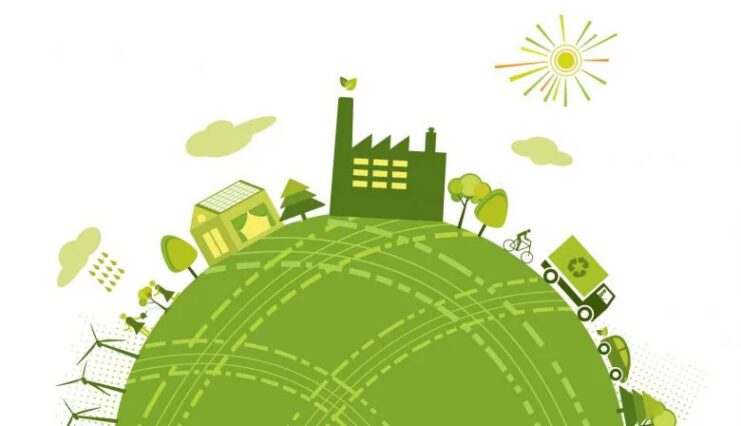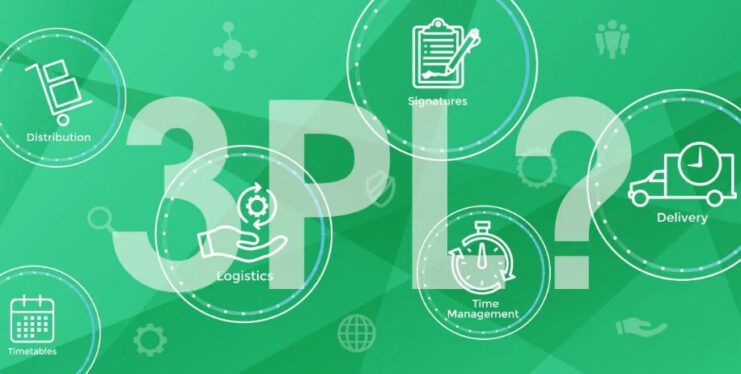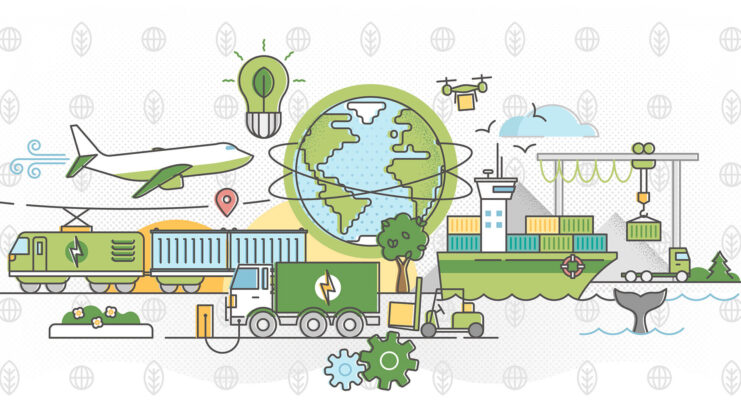In the wake of rising environmental concerns and the urgent need for sustainable practices, the global logistics sector is experiencing a paradigm shift. Green supply chain initiatives are at the forefront of this transformation, redefining traditional logistics and supply chain management. These initiatives not only contribute to environmental conservation but also foster economic efficiency and social responsibility. This article provides an in-depth analysis of how green supply chain initiatives are reshaping the global logistics environment.
Defining Green Supply Chain Initiatives

Green supply chain initiatives encompass a comprehensive approach to reducing the environmental impact of supply chains. This approach involves a series of sustainable practices, including the use of renewable energy, reduction of emissions, waste management, and resource conservation. These initiatives extend beyond mere compliance with environmental regulations, embodying a proactive approach to sustainability. They reflect a growing recognition of the interconnectedness of economic performance and environmental stewardship.
Impact on Global Logistics
1. Eco-friendly Transportation Modes
The logistics sector, traditionally reliant on fossil fuels, is undergoing a dramatic transformation with the adoption of eco-friendly transportation modes. The integration of electric and hybrid vehicles, along with advancements in biofuel technologies, is significantly reducing the carbon footprint of transportation. Innovations like drone delivery and improved maritime shipping techniques are also contributing to more sustainable logistics practices. This shift not only addresses environmental concerns but also responds to increasing consumer demand for greener delivery options.
2. Sustainable Warehousing
Green supply chain initiatives are revolutionizing warehousing practices. Sustainable warehousing includes the deployment of solar panels, wind turbines, and other renewable energy sources to power operations. The design of warehouses now often incorporates green building principles, such as using recycled materials and ensuring efficient waste management systems. These practices not only reduce the environmental impact of warehousing but also enhance operational efficiency and worker well-being.
3. Packaging Innovations

The transition to sustainable packaging is a critical aspect of green supply chain initiatives. Companies are adopting eco-friendly packaging materials, such as plant-based plastics and recycled materials, to minimize waste. The concept of circular economy is also gaining traction, encouraging the reuse and recycling of packaging materials. These innovations in packaging not only reduce environmental impact but also meet the growing consumer demand for sustainable products.
4. Optimizing Supply Chain Operations
The optimization of supply chain operations is a key benefit of green initiatives. Advanced technologies like AI and machine learning are being leveraged to improve supply chain efficiency, reduce resource wastage, and minimize environmental impact. For example, predictive analytics are used to optimize inventory levels, reducing overproduction and waste. These technologies also enhance the transparency and traceability of supply chain operations, ensuring greater accountability and sustainability.
Challenges in Implementing Green Supply Chain Initiatives
Implementing green supply chain initiatives presents several challenges. The high initial investment in green technologies and practices can be a significant barrier, particularly for smaller businesses. There is also the challenge of ensuring supply chain partners adhere to sustainable practices, which requires a collaborative and coordinated approach. Overcoming these challenges requires not only financial investment but also a cultural shift within organizations, emphasizing the long-term benefits of sustainability.
Impact of Green Supply Chain Initiatives on 3PL Companies
The Role of 3PL in Modern Logistics

Third-Party Logistics (3PL) companies, such as Shipro, are integral to the modern logistics landscape. These companies offer essential outsourced logistics services, including transportation, warehousing, and distribution. Their role is pivotal in ensuring the efficient and effective operation of supply chains for various industries. By managing these complex logistics processes, 3PL providers contribute significantly to the smooth functioning of global trade and commerce.
Green Initiatives in 3PL Operations
Green supply chain initiatives have a significant impact on 3PL companies, compelling them to adopt sustainable practices. These initiatives are not just about compliance with environmental regulations but also about responding to the increasing demand for sustainable logistics solutions from customers and partners.
- Sustainable Transportation: 3PL companies are integrating eco-friendly transportation solutions into their services. This includes the use of electric or hybrid delivery vehicles and the adoption of fuel-efficient driving practices. By doing so, 3PLs can reduce their carbon emissions and contribute to cleaner air quality.
- Eco-Friendly Warehousing: Green warehousing practices are becoming increasingly important for 3PLs. This involves using renewable energy sources, implementing recycling programs, and optimizing warehouse layouts for energy efficiency. These practices not only reduce the environmental impact of warehousing but also offer cost savings in the long term.
- Green Packaging Solutions: 3PL companies are also playing a key role in the shift towards sustainable packaging. They are partnering with suppliers that provide eco-friendly packaging options and are investing in technologies that minimize packaging waste. This shift is crucial in reducing the overall environmental footprint of logistics operations.
- Technology and Optimization: Advanced technologies like AI and IoT are enabling 3PL companies to optimize their operations for sustainability. These technologies help in route optimization, inventory management, and reducing energy consumption in warehouses, contributing to more efficient and less environmentally damaging logistics operations.
Challenges and Opportunities for 3PLs

Embracing green supply chain initiatives presents both challenges and opportunities for 3PL companies. On one hand, there are challenges related to investment costs, technological adaptation, and training employees in sustainable practices. On the other hand, adopting green initiatives opens up new opportunities for 3PLs. It enhances their brand reputation, aligns them with customer values, and prepares them for future regulations and market trends favoring sustainability.
The Global Perspective
On a global scale, green supply chain initiatives are fostering a more sustainable and responsible approach to logistics. International collaboration and standardization are essential in promoting sustainable practices across borders. These global efforts are not only crucial for environmental conservation but also for ensuring the long-term sustainability and resilience of the logistics sector.
Conclusion
Green supply chain initiatives are pivotal in transforming the global logistics environment. By integrating sustainability into every aspect of the supply chain, these initiatives are reducing environmental impact, enhancing efficiency, and fostering a more responsible approach to logistics. The ongoing evolution of these practices is key to achieving a sustainable and prosperous future for the logistics industry.












